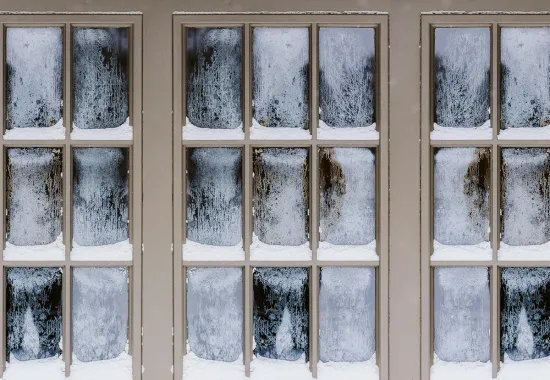Resignation
“After three years?”
“Around three years,” I say.
Sarah holds my two-weeks’ notice with both hands. “Why?”
Our secretary calls from down the hall, says the client from the new brewery is on the line claiming they got a better deal at a different ad agency.
“I’ll be back in four seconds,” Sarah tells me.
She’s right to be surprised. I gave no reason for leaving in my notice, just stated it as fact. I’ve shown no signs of discontent, and my letter is a terrible start to a weekend, a real lunch-ruiner. Why am I leaving? She wants to know.
My desk at Rouge-Red Advertising is covered with a reusable mug shaped like a glass tulip, versions and versions of three-line emails, and a laptop provided to me by the company. I’m a proofreader. Nobody sprinkles their desk with personality here as the overall brand trumps individuality. We’re crafting an image for potential clients: exposed brick, concrete floors, dimmable bulbs. Espresso is provided. We squirt basil-lemongrass lotion from nozzles in the bathroom.
If you were looking to advertise your new soap company, you’d pass by our snack table of dark-chocolate pomegranate chunks, gaze across thirty proofers and designers, and glance out the open window to the downtown street below. Wow, you’d think. How modern. How young these people are. This building is too nice for them to be bad at their jobs. They can draw me a label. They can make me a website. You’d pass right behind me smelling like honey and charcoal, and then I’d proof the email sent to you an hour later confirming your commitment to us. I’d proof that email and tell Sarah that she spelled your name wrong twice, in two different ways. I’m a corrector. This is my job description: $28,000 a year, half of my health insurance.
The job itself is not the problem. With no debt and no kids, $28,000 gets me a modest apartment and plenty of supplemental possessions. I have too many throw pillows. This job is better than others, but working “around three years” anywhere is just enough to let me know that I don’t know myself anymore. Even if I was teaching high school journalism or stocking chard at Whole Foods, I’d still be here right now. I’d still be quitting.
When I found a flyer pinched in my front door, telling me to renew my lease last week, I threw it away. It’s under a ramen wrapper. I made it into cardstock garbage, which is unusual for me. I don’t throw info away. I don’t lose things. I don’t skim over errors. In general, I’m quite good at proofing. Sarah is not worried about losing me. She’s worried about hiring a new proofer, one even fresher off a book-covered desk, one who might not be as pliable as I have made myself.
Sarah is worried.
The brewery has ruined her lunch even more. “Is it a better offer?” she asks me. “From a better place? Would you be willing to think about this?”
“I’m pretty sure about it,” I say.
“We can talk Monday?” she asks. “Let’s talk Monday.”
The minute Sarah is back in her office, I have an email from her with a proposal for a seafood restaurant and a question: “Is this good enough as is?”
I sip from my tulip cup.
An upper-mid-level designer walks behind me, flicks my ponytail.
•
I eat with my dad for lunch, which is normal for me on Fridays, at La Cocina. It used to be a KFC, but now it’s Mexican. We sit at the table nestled into the old drive-through window. The polyurethane on our table is thick like amber preserving the cacti carved beneath it.
He has just finished weeding his garden of cherry tomatoes, zucchini, and corn. He keeps his kumquat tree in a square planter with one of the corners broken off.
“Burrito Tapatio?” I ask. “To split?”
“Maybe,” he says, scanning the Tex-Mex side of the menu, then the Authentic. “That sounds okay,” he continues, “with chicken.”
The server plops down our waters, no lemon, and a plate of beans, which steam from the center and crust on the edges.
Dad wears a fishing shirt with a mesh back, but he doesn’t fish. He says they are breezy enough to keep him from sweating when he eats jalapenos.
“Work?” He scoops from the steamy center with a chip.
I eat from the cooling edges. “Fine. Zucchini?”
He trades his chips for a spoon. “Fine. But my corn fell over last night. Gotta stake it.”
When the server slides our burrito onto the table, the tortilla dimples where the meat pushes and recedes beneath. I slice it in half, pour the tiny cup of scarlet sauce on top.
He takes the first bite.
“You remember my friend Emma?” I ask.
He nods.
"She teaches English in Turkey,” I say. “Says she likes it there.”
He slides the plate to me. “You have the rest.”
“I can’t eat all of it.”
“We can take it with us then,” he says. “Made an appointment for my back tooth this afternoon. Think it might be rotted.”
I eat all of it.
When I’m done, Dad pays with cash, wriggles each dollar one by one through his fingers to be sure each one is only one. Our shoes stick to dried puddles of Sprite on the floor when we leave.
“Help me with the corn?” he asks.
The only time he’s missed our Friday lunch was last year. He slipped in his tub and broke a rib bone. I like to imagine that a woman was there to hear his elbow crack into the toilet seat, to hear his torso splash water onto tile, to snip the ends off cut camellias, to worry. I like to imagine that he doesn’t pace the driveway blowing magnolia leaves into piles by himself. I like to imagine that he eats more than Bunny Bread with low-sodium soup at night.
•
I see Sarah from my desk, uneaten salad opened, rifling through a drawer. A textured canvas hangs above her laptop featuring a smooth, glossy circle. The first year I was here, I printed everything she sent me, proofed by hand, scurried to deliver my findings. The circle was there when Sarah wasn’t. It saw me leave my edits. It knew I’d done my work. Sarah gets to add that flair to her walls because she has walls. She once flew to Santa Fe to see the Georgia O’Keeffe museum, solely to see the Georgia O’Keeffe museum. Maybe that’s what I need, a trip somewhere else to make the right here feel fulfilling.
When the intern who sits beside me returns from lunch, she talks on the phone about brisket and cornbread. “Anyway, they’re only open during the week from 11:00 until 1:00. Sometimes, they don’t even open Fridays. So you know it’s good.”
She’s speaking about one of three downtown restaurants with the word “cotton” in their name. I went to all three my first week here. One of them puts thick-cut bacon in their potato salad. I was gnawing on a larger chunk of it when the upper-mid-level asked me if I had a “guy I’m committed to.” I excused myself to the bathroom and have been packing yogurt ever since. When it isn’t Friday, I spend my lunch hour perusing the antique store down the street. The owner stages his best items on top of the piano in the window. He changes prices daily.
I get an email.
Sarah wants me to proof a new proposal for the same brewery that flustered her this morning. The email has an attachment and a question: “Is it good enough as is?”
I type “Yes,” without reading.
I consider pushing send.
Sarah sends another email. She says never mind. It doesn’t matter anymore. The brewery went with the other agency.
She stands in her office now, faces her glossy circle. She takes a bite of her salad then throws it away.
•
An hour before work is over, Sarah is at my desk. “You have a minute?” she asks, motions towards her office.
I follow.
We sit and stare, corrector and boss.
“Callie,” she says, “you don’t have to stay here for two more weeks. You can leave if you want to. Anyone else can do the proofing.”
•
At the end of the day, I clean my tulip cup, throw away the stacks of emails, wipe my laptop.
Sarah leaves before me.
My phone is on silent, but lights up with an unknown number. When I answer, the man’s voice is young.
“Is this Ms. Callie?” he asks.
He tells me he works at Donnelly Dentistry. He says my dad is fine and there’s nothing to be overly concerned about. His tooth is infected, but they can’t remove it. “His blood pressure’s too high for us to do anything,” he says. “We’re legally obligated to send him to the hospital.” He tells me my dad is fine. He gives me the specific ER.
I sometimes wake up as I’m falling asleep because I hear doors slam inside my head or people scream my name. I know the doors are open and the people don’t exist. I know my dad is fine, but I hear his rib bone in my head. I hear a crack. I hear water splash onto tiles.
•
With my first paycheck from Rouge-Red, I bought a mattress, square dishes, and bamboo in a vase.
Paycheck Two: Cutting board, champagne flutes, and four throw pillows.
Twenty-Two: An e-book, a week’s worth of yogurt.
Twenty-Six: An e-book, a week’s worth of yogurt.
Thirty-Five: A flight to Turkey, a hotel bed, and both subsequent cancelation fees.
Thirty-Six: Bunny Bread, low-sodium soup, and a heating pad full of rice that we’re supposed to microwave in the afternoons. Lavender essential oil and a glowing white orb that disperses calming air.
•
On Monday morning, Sarah is surprised to see me early at my desk.
“Grab breakfast?” she asks. “To talk?”
“No need,” I say.
I spend my whole lunch hour in the antique store, digging through the broaches. A cat of rhinestones. A tear drop of fake rubies. A pearl encrusted petal.
The owner places a collection of dishes on top of the piano in the window. There’s a butter dish, a mixing bowl, two mugs, a couple saucers. They are gaudy green, like sherbet.
“Price?” I ask.
The owner scribbles on his tags. “Probably expensive,” he answers.
“They’re kind of ugly.”
“That’s on purpose,” he says. “Took a black light to them last night. No fakes. All glowed. All uranium.”
“I have $20. Cash.”
He tilts the mixing bowl, grabs a saltshaker from behind it. “This one,” he continues, “you can take for exactly $20 since I don’t have the whole set.”
“What is it?” I ask.
“Jadeite,” he answers.
Back at my desk, I put the saltshaker beside my tulip cup. I fill it with our provided raw sugar, imagine pouring lines of sweet into my espressos, so much sweet that they become shots of wet sand, so much solid there’s no chance to dissolve.
The upper-mid-level speaks. “You know, that awful green isn’t really our aesthetic here.”
“You know, I—”
“Where’d you get that trashy thing anyway?” he asks.
“A client sent it,” I lie. “It’s research for a client. So it has to stay here. For the branding.”
“Right, right,” he says. “Just got sent a box of heirloom tomatoes myself. But,” he continues, “—but aren’t you just a proofer?” he asks.
I decide to buy the mixing bowl on my lunch break tomorrow. The butter dish the next day.
“Aren’t I right?” he asks.
The mugs the next. The saucers.
“Right, right,” I answer.
Then, the daily flick of the ponytail.
Recommended
The Monstera
The Wild Women of Brigantine
The Salamander






